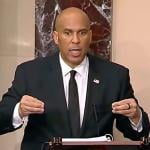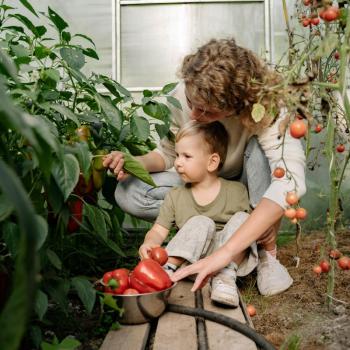If Earth Day 2025 feels sad and ominous to you, you’re not alone. Here’s how pastors can minister through the stages of climate grief.
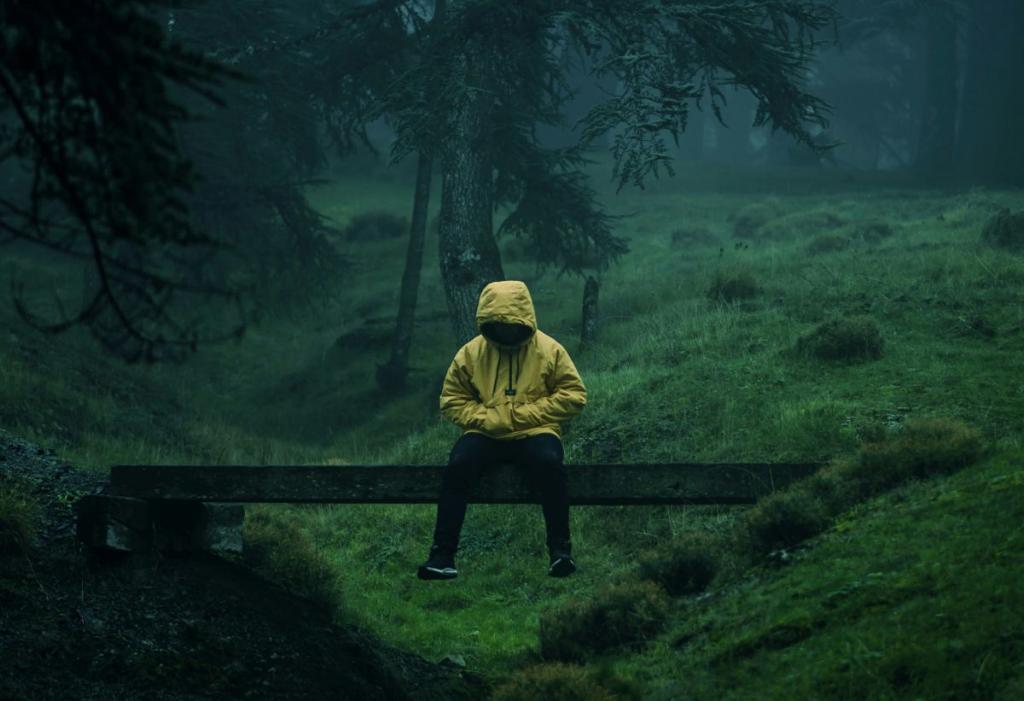
Yes, it’s bad.
The World Meteorological Organization recently published its State of the Global Climate report and observed that 2024 was the hottest year in the 175-year observational record. The authors note that there have been “massive economic and social upheavals from extreme weather and the long-term impacts of record ocean heat and sea-level rise.”
Floods, droughts, wildfires, and catastrophic weather events feel like the Earth crying out with biblical-level groaning (Romans 8:22).
Yes, it’s getting worse by the week.
Meanwhile, the current U.S. Administration is pouring gasoline on the environmental fires. In less than 100 days, they have gutted every rule, program, and office of the Environmental Protection Agency while fast-tracking fossil-fuel energy related permits. They’re rolling back methane emissions limits and opening public lands to unprecedented levels of drilling, mining and logging.
In addition, they have fired thousands across the U.S. Department of Agriculture, National Park Service, Forest Service, NOAA and the EPA. And they are closing environmental justice offices whose task was to clean up America’s most polluted communities.
In short, it’s difficult time to be a person of faith who cares about God’s Creation.
I’m currently directing a Lilly Foundation-funded grant program called “Compelling Preaching for a Climate-Changed World” through Lexington Theological Seminary in partnership with the BTS Center and Creation Justice Ministries. We’re leading a monthly online EcoPreacher Cohort of more than 125 ministers, chaplains, seminarians, and other faith leaders.

Through surveys and focus groups, our EcoPreachers have told us just how alarmed they are watching what’s happening. When asked what emotions they feel about humanity’s future in a climate-changed world, they frequently named grief, anxiety, and dread.
Yet, “determined to act” topped the list.
The vast majority (81-89%) of our EcoPreachers are motivated to care for the Earth because of their concern about animals, plants, forests, beaches or other geographic places. Equally motivating is their concern for future generations and their passion for putting faith into action.
At the same time, many preachers are confounded by the negative reactions they receive from some parishioners whenever they try to preach a sermon that addresses Creation care.
About a third (35%) said that listeners were apathetic or uninterested. 27% were suspicious or resistant, and 10% were hostile.
30% reported that some congregants avoided them after hearing a sermon about ecological issues or sent angry words, letters or emails. One-fifth (20%) indicated that there were times when complaints were made to the church’s governing body or denominational office, or some parishioners said they would leave the congregation or withhold giving. 11% said that they received warnings that they would be removed from their position for such a sermon.
How can we make sense of this kind of irrational pushback against a preacher who simply wants to cultivate a love of God’s Creation so that their congregants will be moved to protect what they love?
Understanding the stages of climate grief can help.
You may have heard of the Stages of Grief developed by Elizabeth Kübler-Ross. I have found this to be a helpful paradigm for seeing the different ways in which people respond to the climate crisis.
I first learned about the stages of grief when I was a seminary student doing my Clinical Pastoral Education as a hospital chaplain. The stages are: shock, denial, anger, bargaining, depression, and acceptance.
When applied to the environmental crisis and how people respond to it, we can begin to recognize the stages of climate grief.
The stages of shock, denial, anger
I remember entering a hospital room one evening after the family had just been given the news that the patient – a wife, mother, grandmother, sister, and friend – was terminally ill. The nurse had called the chaplain’s office, so there I stood in the doorway surveying the family members, each in their own stage of grief.
One young man, a grandson, was just staring into space as if in a daze. He was in the first stage – shock. He couldn’t move or speak.
His mother, the patient’s daughter-in-law, was in denial. “This can’t be true. We just went shopping a few days ago. She seemed perfectly healthy. I just can’t believe this. I’m sure she’s going to be fine.”
In contrast, her husband, the patient’s son, was in the stage of anger, raging at the doctor. “What kind of incompetent idiot doctor are you? Did you even get a second opinion? You just want to make as much money off of her as you can! How are you even allowed to practice medicine?”
Let’s pause here and consider these stages in relation to ways in which people react to the news about the climate crisis.
Climate shock
Many are in shock and take no action at all. What is happening to our planet is so overwhelming that they feel frozen in fear and confusion. The world is changing so fast and the catastrophes happening so frequently, they just shut down.
Climate denial
Others are in denial that the planet is in crisis and live as if everything is fine. They continue with business as usual and refuse to believe that there is a problem. Or they find reasons to explain away the irrefutable evidence of climate change. Some rationalize their denial theologically, saying “God wouldn’t allow this to happen.” Or, “Jesus is coming back and there will be a new heaven and earth anyway, so it will all be fine.”
Climate anger
Still others are angry. They rage at the scientists and environmental activists who have been trying for decades to convey the message so that people will respond. Those who attend churches fume at ministers who preach and teach about environmental issues. They go on the offensive, attacking, mocking, and making accusations of undermining the economy. Or being “Luddites.” Or being naïve or unrealistic.
While we may feel frustrated or even hurt by these responses, they make sense within the stages of grief.
The stage of bargaining
There were other people in that hospital room at the other stages as well. The patient’s brother talked to the doctor in pleading tones.
“Isn’t there some experimental treatment we can try? Can you do some kind of surgery? I’d be willing to give blood or even donate my kidney if it would help!”
This man was in the bargaining stage, looking for a way out of the situation.
Climate bargaining
In my work of environmental activism, ministry, and teaching, I find many people in this stage. For years we thought that if we just changed to LED lightbulbs, or drove hybrid cars, or installed a few solar panels, we could “save the planet.”
This willingness to sacrifice on an individual level is noble, but such wishful thinking may have undermined the efforts needed to mitigate climate change. This is because real climate solutions require massive policy changes, laws, intergovernmental agreements, and the willingness of countries and leaders to follow through. It requires top-down as well as bottom-up solutions.
Of course, there is some good news, such as rapid technological advances and a steep drop in the cost of solar energy. There is also widespread pushback to the energy and environmental policies of the current Administration across a wide spectrum of the population. Plus, the global grassroots climate movement is growing. People with incredible stamina and unrelenting courage are mobilizing across the planet to preserve what is left of our fragile Earth.
But at this point, as Brian McClaren astutely points out in his book, Life After Doom, we are headed for some version of a collapse scenario.
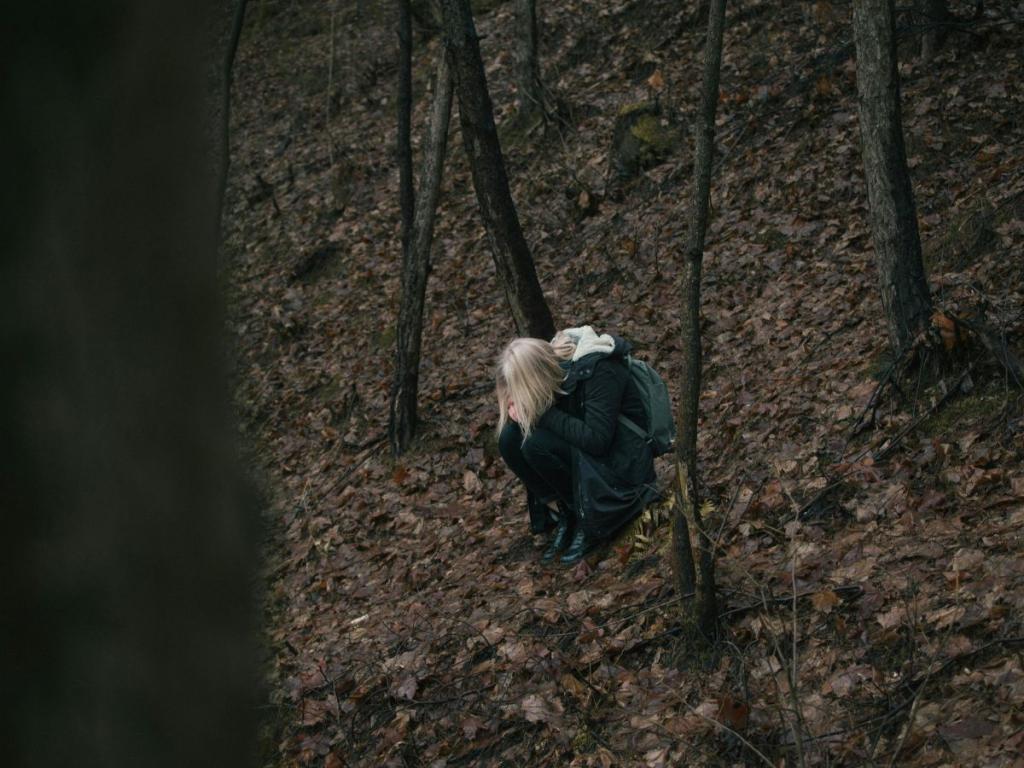
Climate depression
It’s easy to understand, then, why some folks find themselves in the stage of grief characterized by depression.
I call it “the dark night of the green soul.”
It’s the daughter in the corner of the hospital room who just sobs inconsolably, knowing that her mother is dying.
I must say that person is me more often than I care to admit. Such as when I read about “Sudan,” the last male northern white rhino on the planet, who died in Kenya on March 20, 2018. It might as well have been Good Friday for me. Because the extinction of this rhino species is part of an Earth-wide crucifixion, what I call the “eco-crucifixion.” The realization of what we are losing is gut-wrenching and sometimes leaves me despondent.
Compassion and lament is critical at this stage.
Our telling the truth about the state of our world is like a form of biblical lament.
I believe faith leaders must honor this sorrow and despair with the honesty of biblical lament. Like the angel in the Book of Revelation, we proclaim with a loud voice: “Do not damage the earth or the sea or the trees” (Revelation 7:3). Like the prophet Hosea, we grieve that “There is…no knowledge of God in the land…Therefore the land mourns, and all who live in it languish; together with the wild animals and the birds of the air, even the fish of the sea are perishing” (Hosea 4:1b, 3).
Walter Brueggemann tells us lament achieves three things:
- recognizes the reality of injustice, loss, and grief
- names that injustice as intolerable
- ultimately, moves us to action to follow God’s call to make it right again.
[Walter Brueggemann The Message of the Psalms: A Theological Commentary. (Minneapolis, MN: Augsburg Fortress: 1984), Chapter 3.]
In other words, lament must be used to break through apathy and numbness, creating a space for action.
Some of us are parents of children and leaders within our respective faith communities whose members look to us for a way forward.
Some of us are clergy whose congregations turn to us for an authentic word of witness during this frightening time.
We have friends and colleagues who have linked arms with us to face the future with courage.
And we worship a God who, in the Christian tradition, promises resurrection, even after all hope has been crucified.
So, some are moving to the stage of acceptance.
This is the patient’s husband who was talking to his wife, asking her questions about what she needs, what she wants, and how they can best spend their remaining time together.
He had accepted the news and focused on what his wife needed at that moment, even while tears streamed down his face.
This is not to say that there wouldn’t be days ahead when he didn’t also experience shock, denial, anger, or bargaining. Or he might have vacillated between acceptance and depression. Because not everyone goes through every stage, and the stages do not necessarily happen in a particular order. Also, a person may move in different directions among the stages at different times, depending on the circumstances.
Climate acceptance
McClaren’s book is about accepting the collapse with as much courage, grace, poetry, justness, humility, wisdom, and love as possible. He even encourages us to choose joy amidst the collapse because that’s what Earth give us. So that is what we must return – joy.
My friend and co-editor of Rooted and Rising: Voices in a Time of Climate Crisis, Margaret Bullitt-Jonas describes what I see as a beautiful description of acceptance in her chapter, “Love Every Leaf.”
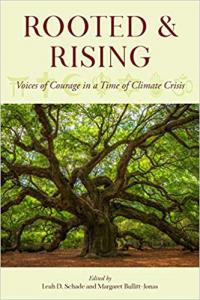
I’ve taken to praying outdoors. I go outside, feel the good earth beneath my feet and the wind on my face, and I sing to the trees, to oak and beech, hemlock and pines. Making up the words and music as I go along, I sing my grief to the trees that are going down, and my grief for so much more – for what we have lost and are losing, and for what we are likely to lose . . .
I sing my praise for the beauty of trees, and my resolve not to let a day go by that I don’t celebrate the precious living world of which we are so blessedly a part. I’m not finished until I sing my determination to renew action for trees and all of God’s Creation.
Finding our footing in the stages of grief
In the chaplain residency program, I learned the value of simply sitting with people and bearing witness to whatever stage of grief they were in. But as in that hospital room with many different people, those serving congregations are often pulled in different directions. Who should we attend to first? The one in shock? The person in denial? The one raging? Perhaps the one who is bargaining?
For me in that moment, the hardest person to sit with was the patient and her husband. It was difficult to look this woman in the eye and take in all that she was feeling. Because it meant facing my own grief and feelings of helplessness in the face of the reality that she – and all of us – are facing.
But my training told me that’s where I had to focus – on the one who was dying. So, I moved to her bedside opposite her husband. She offered her hand to me, and I took it.
“What is this like for you?” I asked.
Her voice, raspy with emotion, spoke of fear alongside faith. She told the story of how she started to realize she was sick and what brought her to this point where the facts were undeniable. And that she somehow still trusted in the goodness of God to see her and her whole family through this.
As she spoke, everyone in the room grew quiet and listened. The energy shifted.
The tears still flowed. But fisted hands were released. Empty hands reached out for others. And the individual orbits of grief aligned around the one they loved, at least for those few minutes.
So how can faith leaders minister amidst climate grief?
In our EcoPreacher program, all the speakers we’ve invited have in one way or another affirmed that the most pastoral response in the midst of climate grief is to attend to the one who is dying. This happens on several levels.
One level involves deep listening to our planet and our Earth kin who are suffering and dying. The razed forests and diminishing wetlands. Coastlands and islands subsumed by rising sea levels. Species that are endangered. Glaciers that are disappearing.
Granted, this is the hardest “person” to sit with because it means facing our own grief and feelings of helplessness. But it is through this listening that we hear the call to protect what we can and to cherish what is left.
Another level is listening to the communities, tribes, island nations, and vulnerable people who are experiencing the worst effects of the climate and environmental crises. Bear witness to their pain and loss. Ask what they need and then find ways to join with others to help.
Perhaps your church’s Earth Day service could include a liturgy of lament.
Ask people to write down on a piece of paper the name of a place in God’s Creation that they love or have loved at some time in their life. Even those who are in denial or who are raging can usually manage this moment of prayerful pause and holy remembering.
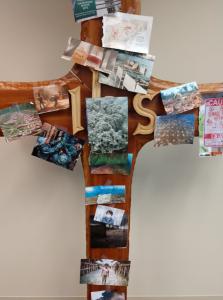
Then affix these names or place them at the foot of the cross, creating a collage of holy ground.
Ask people to simply listen – listen to the loss, the pain, the shock, the anger, the bargaining, the depression. And especially: the love.
Perhaps in that moment, the energy will shift.
The tears might flow. But maybe fisted hands will release. Perhaps empty hands will reach out to others. And maybe the individual orbits of grief will align around the planet we love, at least for those few minutes.
Protect your inner landscape as you minister amidst climate grief
Finally, I encourage faith leaders to find ways to nourish and sustain their own souls as they minister during this incredibly difficult time. Margaret Bullet-Jonas describes it as “protecting your inner landscape.” She writes:
Just as much as I want to keep the living world alive, I want to keep my soul alive. Protecting the outer landscape requires that I protect my inner landscape, too. I find ongoing energy and courage to rise up and safeguard life only if I am spiritually grounded. The intention to stay inwardly alive – awake, aware, sensitive to self and others, and responsive to the leadings of Spirit – must be renewed every day.
In other words, let God’s Spirit—in and through the Earth—minister to you.
Just as I felt God’s Spirit moving in that hospital room, saw it in the woman’s hand opened in invitation to me, and felt it in the shifting energy, we can be open to God’s Spirit moving amidst our climate grief.
Spend time with Creation. Pray with her. Sing to her. Journal about her. Cry with her. Protest with her. Caress her trees and leaves. Dance in her rain.
Live and love Creation fully, even as you have been fully loved.
Read also:
Trump Comes for the Trees: A Furious, Faithful Lament
Six Children’s Sermon Ideas for Earth Day
The Origami of Grief: Unfolding, Refolding, Enfolding
Thanks to Allen Ewing Merrill, Avery Davis Lamb, Ben Yosua-Davis, Nicole Diroff, Derrick Weston, Carolyn Sharp, and our entire EcoPreacher team for their work on this project!
A new EcoPreacher cohort will begin in September 2025. To apply, click here.

The Rev. Dr. Leah D. Schade is the Associate Professor of Preaching and Worship at Lexington Theological Seminary in Kentucky and ordained in the ELCA. Dr. Schade does not speak for LTS or the ELCA; her opinions are her own. She is the author of Preaching and Social Issues: Tools and Tactics for Empowering Your Prophetic Voice (Rowman & Littlefield, 2024), Preaching in the Purple Zone: Ministry in the Red-Blue Divide (Rowman & Littlefield, 2019) and Creation-Crisis Preaching: Ecology, Theology, and the Pulpit (Chalice Press, 2015). She is the co-editor of Rooted and Rising: Voices of Courage in a Time of Climate Crisis (Rowman & Littlefield, 2019). Her book, Introduction to Preaching: Scripture, Theology, and Sermon Preparation, was co-authored with Jerry L. Sumney and Emily Askew (Rowman & Littlefield, 2023).


